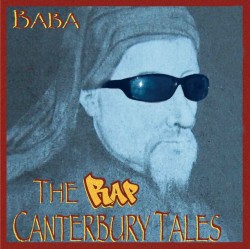My goal is to redefine the whole history of rhyme
‘Cause the only way to free the soul is to free the mind
And no wisdom as old as this should be confined
To total mystery, so we’ll just read the signs
And DaVinci codes, and try to see the science
In this linguistically-composed pristine design
–extracted from Rhyme Renaissance by Baba Brinkman
As much as I may find the day-to-day realities of the global nature of my job to be somewhat soul-destroying, outside of work I love the global and interconnected nature of the world we live in.
I love that a Scotsman who lives in Australia can run into a Canadian in Brisbane, then make a comment about it, which I will notice back in Canada (albeit on the other side of the country), and once I do notice it I can instantly go see all kinds of information about the guy. Which then results in my ordering materials from that Canadian, materials that adapt literature written in the 1300s by an Englishman. And a few weeks later, these materials just show up in my mailbox. Magic.
What am I talking about?
Let’s skip the “how I got here” and just focus on “the where here is” then.
There’s a guy out in Vancouver named Baba Brinkman. He does a lot of interesting things. You can go check out his site.
One of the things he did a couple of years back was to adapt some of the Canterbury Tales into rap. This isn’t just a project to amuse the kind of nerds who dig both Chaucer and rap–although it works fine on that level–it’s actually an attempt to modernize Chaucer; to put the Tales into a delivery system that is a modern equivalent to the spoken poetry of Chaucer’s time. It’s about presenting the stories in a popular (as in “for the populace”) way. I can totally get behind that–the stories in Chaucer shouldn’t be hidden for only Middle English geeks, and prosaic or iambic translations lose either the rhythm or the “contemporary-ness” of Chaucer’s versions, so why not rap? The whys and wherefores are discussed in the introductory materials in the book version of the translation (which you can also read online).
Yeah, there’s a book version. It’s pretty snazzy–all that intro stuff, plus side-by-side adapations, Chaucer’s Middle English on the left, Brinkman’s rap version on the right. Plus lots of illustrations.
That’s reference material though–it’s the performed version that is the real deal, that brings the stories into that equivalent modern form.
The global-and-connected nature of the world doesn’t make it any easier for me to see Brinkman perform the material in the flesh, but it sure does make it easy for me to order a CD copy. Or, to listen to the performances on his website. Or to watch some performances on YouTube. Or even to watch animations accompanying the performances on YouTube:
So, yeah, I found out about this a while ago, and the book and CD arrived at my door today. And I am well pleased. I don’t think I need to say more than that–if you’re interested I’ve given you everything you need to find out more for yourself. And you can get a lot of the benefit without spending anything but attention.
Now I’m thinking it’s time to go back to that web site and get some more material. The Orwell-meets-Eminem looking “Rebel Cell” will probably be right up my alley. (Probably in this case meaning, I listened to the “donationware” version online and would like to own a copy, and I wish I could see a live performance). And I should probably also look into the earlier Mud Sun release…



2 comments for “Diverse practyk in many sundry werkes”